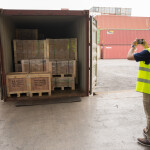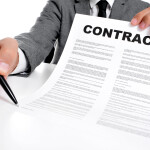29
Jul 2014
Mistakes when sourcing in China
Lots of foreign companies want to import from China, but most of them do not take the necessary time to find the right supplier. Here are the 7 most common mistakes foreign companies make when sourcing in China:
- Lack of a well-defined strategy: When sourcing goods in China, you must have a well-defined sourcing strategy or “road map,” including locating the best supplier for your particular needs. Too few small companies do the proper due diligence when shopping for goods in China. As a result, they may not get the best deal in terms of price, quality, functionality, or timely delivery.
- No well-defined standards for suppliers: Before searching for suppliers, it is important to have defined standards. Well-defined standards can determine whether sourcing efforts are successful. For example, a company might initially purchase a small order of electronic parts from a Chinese supplier and be happy with the product quality only to learn that delivery on larger follow-up orders would be delayed due to the supplier’s limited production capacity. If the company needs the parts delivered on time to capitalize on the holiday season sales rush, it runs the risk of losing profits, all because it did not eliminate potential suppliers with limited production capacity.
Once supplier expectations are identified, only suppliers that can meet those standards need to be contacted, which can keep you focused, save a lot of headaches, and avoid disputes down the road.
- Inadequate due diligence performed on suppliers: Due diligence is perhaps the most important step when sourcing in China, yet many companies fail to perform adequate due diligence and end up being scammed. Some fail to perform due diligence at all!
- Lack of protection for payment and quality issues: Sourcing in China is, after all, an international transaction. Before you make a payment, you need to think about how you are going to get your money back if there is any dispute over product quality or delivery. Otherwise, you are at the risk of losing your money.
- No written contracts: To adequately protect your interest, you must have a detailed written contract. Any oral agreements or invoices may not adequately protect you, especially when different cultures and languages are involved. You should understand that the legal structure and enforcement options in China are different than in other countries.
- Written contracts not reviewed by attorneys: Some people download a copy of a form contract from the Internet or simply use a form they used in the past. Sure, most provisions are similar for a typical sales transaction, but the devil is in the details, so it is likely in your best interest to consult an attorney to help draft and perhaps negotiate the contract for you.
A good cross-border transaction attorney can draft a contract with more favorable provisions to buyers (namely, you) and better protect your interests. For example, your attorney may explain to you the pros and cons of contract provisions that dictate what law applies to contractual disputes between you and the supplier, or the method in which such disputes are to be resolved, like arbitration. Each of these decisions will have its own ramification if an actual dispute occurs, so there is real value in having the options explained to you clearly, not to mention the peace of mind that comes from having a well-written contract in place.
- No mandarin speaker on the team: The importance of having a Mandarin Chinese speaker on your team is second only to due diligence on Chinese suppliers. In cross-border transactions, you cannot afford to settle for “maybe” or “probably” by saying that you and your supplier kind of understand each other’s expectations, which can lead to failure, to say the least. No guessing games, period!
If your supplier speaks fluent English and can understand your English well, you may get away without a Mandarin speaker’s help. Otherwise, you should consider engaging a Mandarin speaker, preferably a native speaker who also knows the business culture to help make sure your suppliers understand your expectations clearly and completely. At minimum, you need a fluent Mandarin speaker on your team, at least at the crucial stages of the transaction, like clearly setting product quality expectations. Finally, it is generally preferable to find your own Mandarin speaking team member, rather than relying on your supplier’s interpreters.
Of course, a native Mandarin speaker is indispensable for foreign companies that wish to establish a physical presence in China when sourcing goods, which will be discussed in the next article.
Source: Forbes Magazine
More information on: SBE INTERNATIONAL































